Beekeeping is man’s work, don’t ya know?
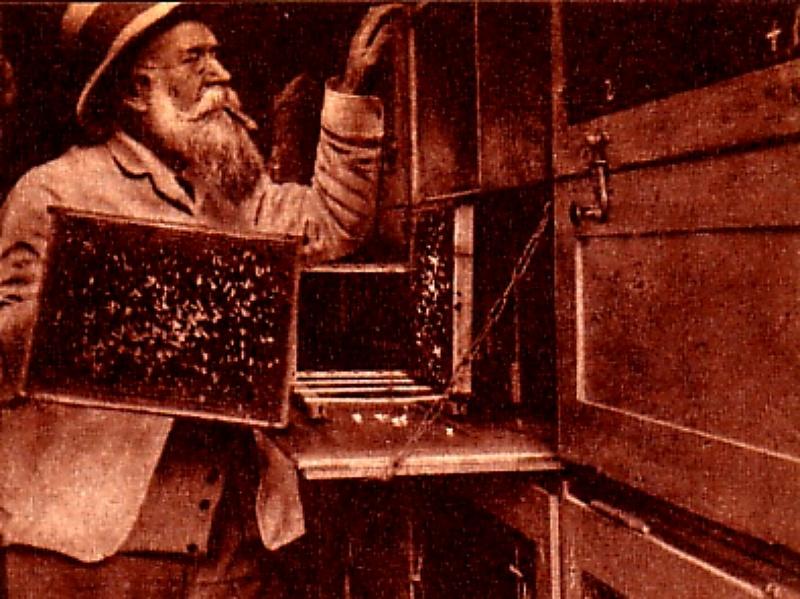
Photo of 19th century Dutch beekeeper Max Kuntzsch courtesy of the Südwestdeutscher Beekeeper Journal via Wikimedia Commons
Come, now—I know you can hear me buzzing.
But, seriously …
In Kenya, beekeeping is a longstanding tradition that has truly been restricted to the male sector, no ladies allowed.
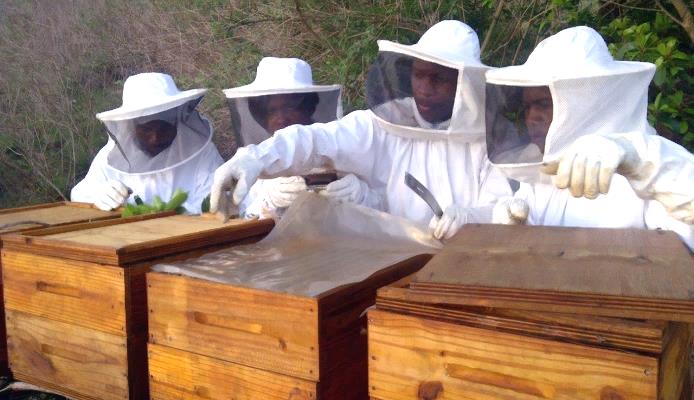
Photo by Guy Stubbs via Wikimedia Commons
According to Erin Yamaoka, a Kiva Fellow working in Kenya, “Beehives were historically kept very high in trees requiring the beekeeper to undertake a somewhat dangerous climb in order to service or retrieve the hive. Culturally, this was not considered an activity fit for Kenyan women.”
This photo from a British expedition in 1906 shows natural log hives suspended in trees:
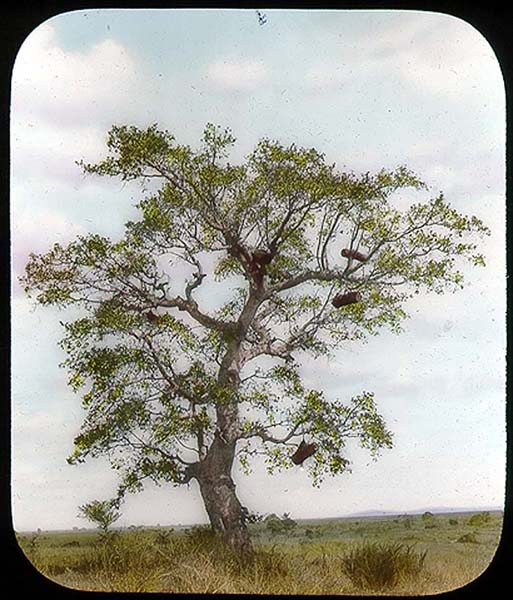
Photo by Carl Akeley, The Field Museum Library, via Wikimedia Commons
And, we all know that girls dont’t climb trees, right?
Sigh. Tell that to my granddaughters. When they’re here helping me with my cows, they have to climb up and over every gate rather than walk through them with me. See a tree and they’re up it.
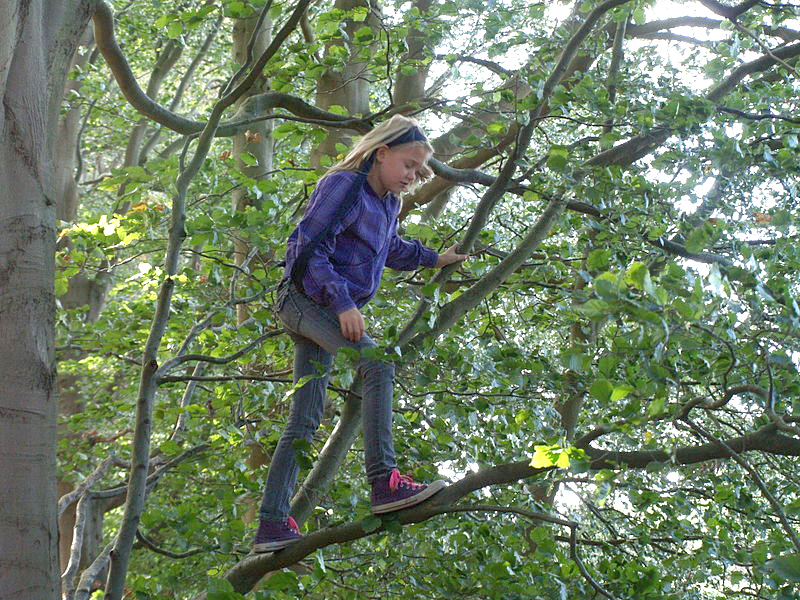
Photo by Marjolein via Wikimedia Commons
Anyway, the wonderful news here is that the times they are a’changing, and the business of beekeeping is being steadily infiltrated by Kenyan women who are gaining access to their own apiaries with the help of Honey Care Africa and financial support from Kiva’s online lending platform.
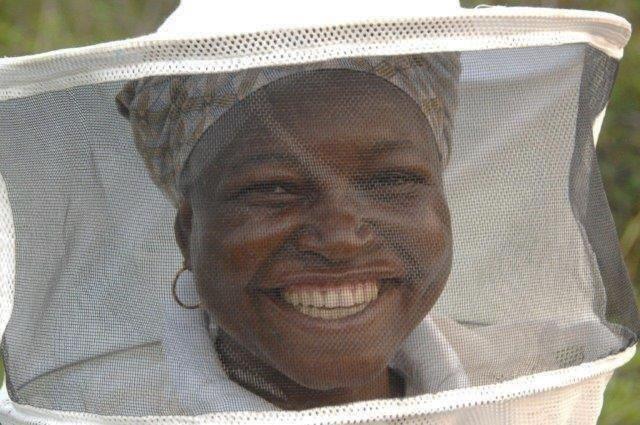
Photo by Guy Stubbs via Wikimedia Commons
“For the first half of my Kiva fellowship, I was placed with Honey Care Africa, an organization that gives Kiva loans to farmers for beehives and apiary materials,” Yamaoka explained in an article on Medium.com. “I attended a Honey Care ‘Kiva meeting’ with a group of prospective Kiva borrowers, and they were an all-women farmer group.”
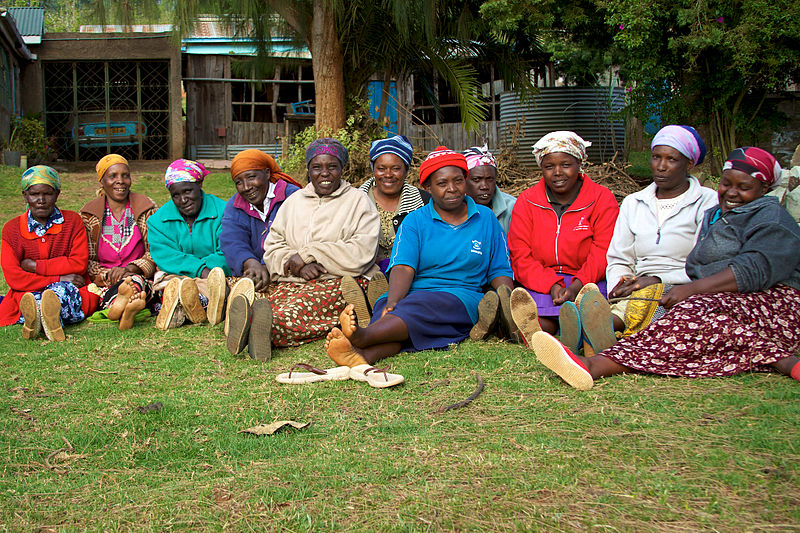
Photo by McKay Savage via Wikimedia Commons
The involvement of women in Kenya’s beekeeping industry is significant in ways that are much more meaningful than merely a “girls can do it too” gender-equality statement. Yamaoka reports, “Studies have shown that women are the ‘change’ agents of the family since women spend a greater percentage of their income on the welfare of their households than do men. As a consequence, increases in women’s incomes improve the health, nutritional, and educational status of other household members, particularly children.”
What’s more, Kenyan women are diligent and dedicated managers of agribusinesses, purportedly spending 80 percent of their time on the farm, while men spend only 20 percent.
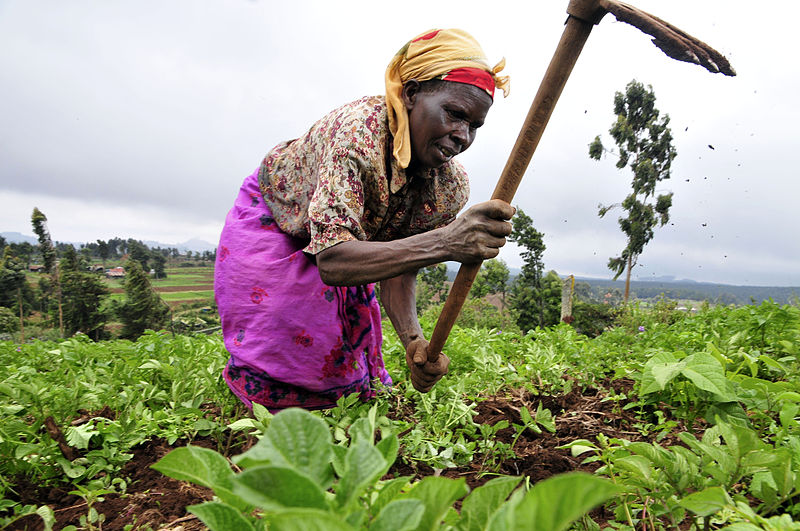
Photo by CIAT via Wikimedia Commons
“I had the privilege of meeting some of these pioneering female Honey Care Africa farmers. One such woman was Mary, whose kindness was overwhelming,” Yamaoka recounts. “She welcomed me into her home, bearing gifts of chicken and chapatti, a meal she and her farmer group had organized. Mary’s children are all grown, so she manages her shamba (farm) largely on her own and was very optimistic about her hives in spite of recent drought. Within the group, the plans for the income from their honey harvests ranged from school fees and household expenses to … more hives!”
Honey Care Africa strives to provide smallholder farmers like Mary with the equipment, training, services, and market access necessary to become commercial honey producers. They guarantee a competitive fixed purchase price for honey on a contract basis, which enables farmers to repay their loans quickly and sell to a stable market.
Thanks to the organization’s partnership with Kiva, loans as small as $25 from worldwide donors help struggling Kenyan beekeepers foster their apiaries and simultaneously contribute to a growing faction of female farmers who are bucking the trend of oppression and poverty. When I checked Kiva this morning, all current loan requests through Honey Care Africa are funded (how cool is that?). But, you can sign up to be alerted when a new loan request is posted, and you can also contact Honey Care’s Natasha Nurani to learn more ways to contribute (Natasha.Nurani@honeycareafrica.com).





















































Bees have been that little ace up a women’s sleeve in the history of many nations and cultures. In the book you shared last year, Bees in America, it was fascinating to read how transformational bees have been for pulling women out of poverty and providing necessary income to feed and take care of families. The story of bees is one of the best Love Stories of the world!
Love this article! And I’m not sure if I like the pictures of the log hives in the tree the best or of that happy face behind the netting…
HI MaryJane, so glad you looked up Kiva.com. that I mentioned in my post on the organizer giveaway post . I got my calendar and its lovely, thanks. I now will be able to be totally organized for once! and the spaces for other family members are fine to write in more info on my appts.
Alas, putting up the schedule for Duke, Earl and Frankie would be so boring, lets see: sleep, eat, nap, groom oneself, sleep, nap, beg for more food, beg for more attention, look for mice, chase the Asian ladybugs that are coming alive in the house, sleep… you get the picture.
I have a jar of that wonderful honey, it was sold locally a while back, it is black as molasses and very intense, it is the HIghland Honey, which I guess is from the Mt. Kenya and Mt,. kilamanjaro areas.